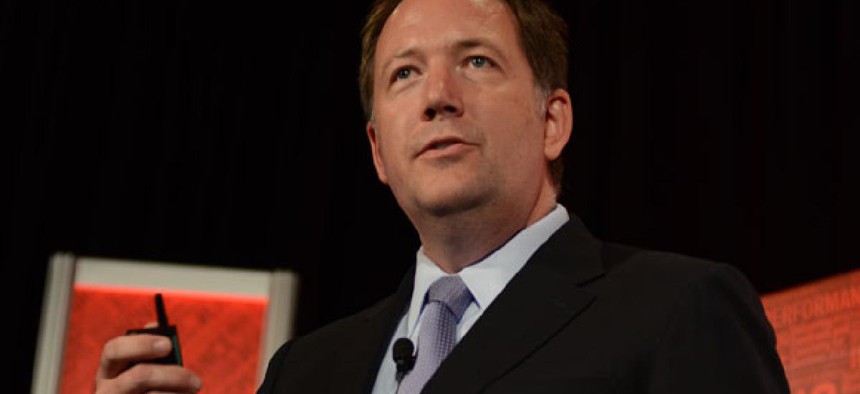White House Releases New Tools for Digital Strategy Anniversary

Caitlin Fairchild/Nextgov.com
Federal CIO Steven VanRoekel says the effort serves as 'a giant permission slip telling government now is the time to innovate.'
The White House marked the one-year anniversary of its digital government strategy Thursday with a slate of new releases, including a catalog of government APIs, a toolkit for developing government mobile apps and a new framework for ensuring the security of government mobile devices.
Those releases correspond with three main goals for the digital strategy: make more information available to the public; serve customers better; and improve the security of federal computing.
The anniversary came one day after the General Services Administration followed through on another strategy goal -- increase shared services across government and cut costs -- by inking blanket purchase agreements with three major telecoms for wireless phone service. GSA estimates the contracts will save taxpayers $3 million over five years by better leveraging the government’s buying power.
Two weeks before the anniversary, the White House published an open data policy and President Obama signed an executive order requiring agencies to produce all new government information in open and machine readable formats by default.
In a conference call with reporters Thursday, federal Chief Information Officer Steven VanRoekel described the overarching goal of these initiatives as giving citizens access to government “where they are” rather than requiring citizens to come to government platforms.
That includes using analytics to optimize the federal web presence based on how people actually use it, he said, as well as optimizing federal websites for mobile use and opening up federal data so people outside government can make it more accessible to the public.
VanRoekel also expressed hope that new mandates would help federal workers respond more nimbly to citizens’ needs.
“In large part, this work -- the digital government strategy, the [open data] policy, the executive order, the presidential memo last year -- all of that is a giant permission slip telling government now is the time to innovate,” he said.






